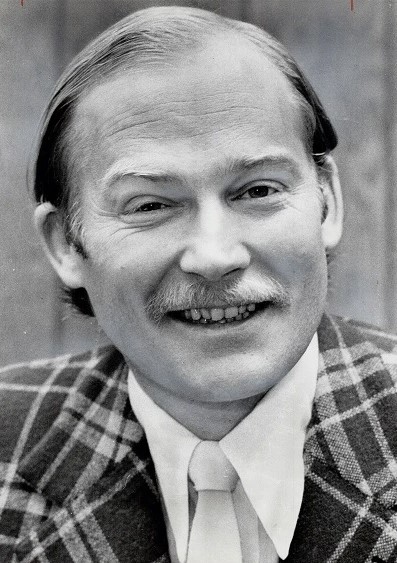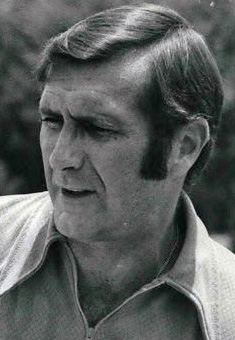Saints Pivotal Moments




L-R: Archie Manning on the picket line, John Bassett, Dick Gordon, John Mecom
1974: Archie Fends Off Memphis
Archie Manning was in the middle of a tug-of-war in the summer of 1974 as the Saints prepared for to start training camp at Vero Beach FL. The World Football League was set to begin play with 12 teams that season, and the Memphis Southmen reportedly offered Archie a three-year no-cut contract worth more than $300,000 annually. An "unimpeachable source" told the Times-Picayune that with bonus clauses, the package would make the deal worth "substantially more than a million" dollars.
Memphis's multi-millionaire owner John Bassett wanted to make the Ole Miss legend, whose birthplace Drew MS, was just 105 miles from Memphis, the centerpiece and biggest draw of his new team.
Archie's contract with the Saints had two full seasons remaining on it, plus the mandatory option year that would bind him to the team for a third year. So Manning would not be able to play with Memphis until 1977. Leo Cahill, general manager of the Southmen, understood that timetable. "We definitely have an interest in Archie Manning if and when he fulfills his obligation with New Orleans, but we haven't talked specifics with him at this time." He added that contact with Manning's agent "hasn't taken the form of significant negotiations because he doesn't become available for three years."




L-R: Archie Manning on the picket line, John Bassett, Dick Gordon, John Mecom
Earlier in the year, Manning admitted that he had been contacted by the Memphis franchise and would consider any offers made to him. Archie had previously been courted unsuccessfully by the WFL's Birmingham Americans. He had also said that, if he ever left New Orleans, he wanted to play in Memphis, where Ole Miss played multiple times during his college career.
The NFL had further turmoil in addition to the threat posed by the WFL. With the 1970 Collective Bargaining Agreement set to expire, the players went on strike July 1. The players' demands included:
–elimination of the "Rozelle Rule" that allowed the commissioner to award compensation, including players, to a team losing a free agent if both the signing team and the player's new team could not come to an agreement;
–elimination of the option clause (like the one that bound Archie to one more year with the Saints);
–impartial arbitration of disputes;
–elimination of the draft and waiver system.
–elimination of the "Rozelle Rule" that allowed the commissioner to award compensation, including players, to a team losing a free agent if both the signing team and the player's new team could not come to an agreement;
–elimination of the option clause (like the one that bound Archie to one more year with the Saints);
–impartial arbitration of disputes;
–elimination of the draft and waiver system.
NFL teams opened training camps with all-rookie squads that would play the preseason schedule until the strike was resolved.
On July 19, Archie with his attorney, Frank Crosthwait, and his agent Ed Keeting met with Saints vice-president Dick Gordon, a former astronaut, and administrative chief Harry Hulmes. Keeting was a member of the law firm that served as the agents for Miami Dolphins stars Larry Czonka, Jim Kiick, and Paul Warfield when they signed a contract with the Southmen earlier that year that would take effect in 1975 after their option year with the Dolphins.
Gordon would not comment after the meeting except to say that it concerned "business." When asked if the discussion concerned the WFL, he responded, "It could."
Archie said he would fly back to New Orleans the next day after participating in that day's picket of the Saints camp. That action provoked a response from Saints owner John Mecom. "We've had a difficult time developing a leader on the field, and that includes Mr. Archie Manning. I've been very disappointed in some of his actions the last couple of weeks. I hope he tries as hard on the field to be a leader as he is off the field." Archie responded with his own sarcastic remark. "He's been leading the team for seven years, and you can see where we are." The franchise quarterback added: "I think it's no surprise to the people who really know him when he says something like that. It is the same deal with anyone who has ever left here or with anyone he doesn't like."
Manning said he wasn't asking the Saints to match the Memphis offer. "They have to come up with something though," he explained. "I don't really want to leave here. The WFL is off to a good start, but you don't know what's down the line in three years. I would be stupid to ask the Saints to match the offer, but I feel like I'm at least due some consideration not to sign with Memphis and to play the next three years here."
"I'm trying to weight loyalty to the Saints, to the fans and to the city against financial security for my family," Archie told the press July 23. "It's something I've never wanted to do, something I never dreamed I would have to do." He said he would make his decision by the next day.
But it took much longer than that. On July 29, Archie said, "I'm staying out of it and letting it all up to my attorney and my agent. There's no deadline."
The negotiations and the player strike dragged into August. Times-Picayune sports editor Bob Roesler reported on a phone call he had with Bassett. "Speaking by phone, he remarked what a 'folk hero' Archie was in Memphis. ... Asked if the Manning deal was still cooking, Bassett replied, 'The egg is in the frying pan. We just have not turned on the heat yet.'"
Manning was now demanding that the Saints renegotiate his present contract. He wanted $80,000 more per year increase. The club countered with an offer that was less than what Archie wanted.
Manning and other veteran Saints reported to training camp August 13 after the 14 day "cooling-off period" from the NFLPA strike. They promised they would not go back on strike.
Four days later, Archie's attorney Frank Crosthwait told the press that the Southmen will have to put up "guaranteed money or a letter of credit" to lure Manning away from the Saints. If the WFL should fold before Archie reported to them, he would still have the guaranteed money.
On August 20 John Mecom revealed that the Saints made Archie "a helluva offer–an extension of his present contract and an increase that would begin this year."
As Archie began playing in preseason games and then the regular season, the Memphis offer disappeared from the news.
The WFL completed its first season and most of its second season before folding.